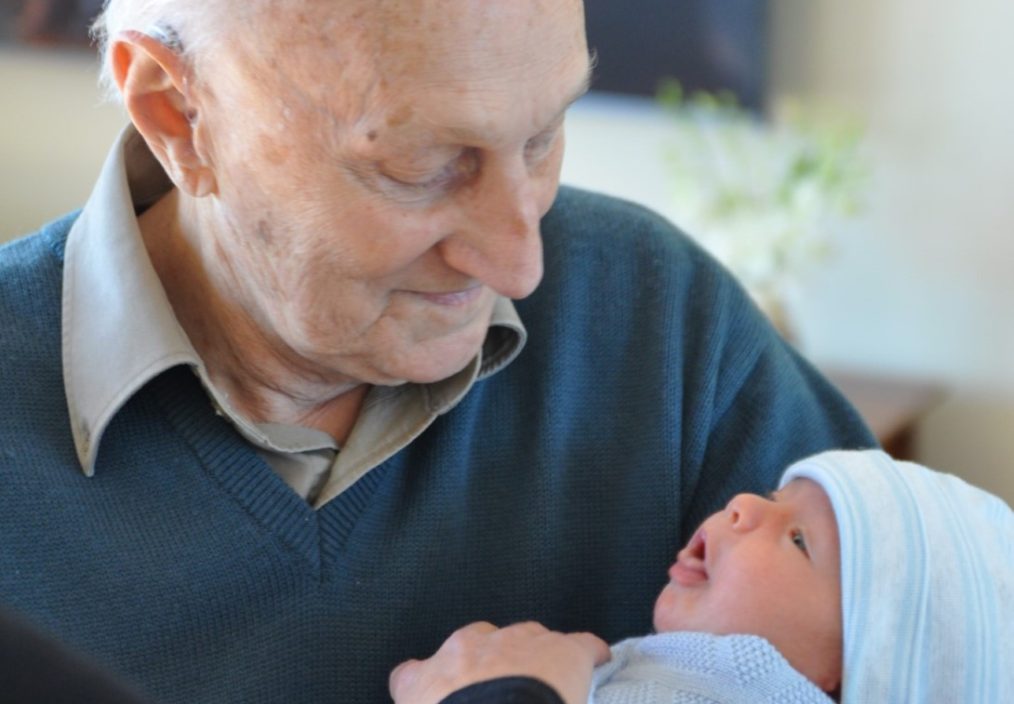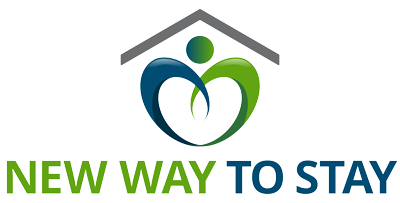
The art of ageing
New Way To Stay founder Louise Mace explains how compelling statistics about our ageing population combined with personal experience inspired her to make a difference in the lives of older Australians.
“Beautiful young people are accidents of nature, but beautiful old people are works of art.” These are purportedly the words of former US First Lady and renowned humanitarian Eleanor Roosevelt (1884-1962) – although a similar quote is attributed to Polish poet Stanislaw Jerzy Lec (1909-1966): “Youth is the gift of nature, but age is a work of art.” Regardless of the source, the power of the idea still resonates – and is perhaps even more potent than ever today as we confront the challenges of our rapidly ageing society.
So much has changed in the world since either of these quotes were uttered – not least of which is the makeup of society in much of the western world, including Australia, as the post-war Baby Boomers head into their older years.
Thanks to improvements in diet, health and medical technology, more of us are living into our old age – a privilege denied even to our recent ancestors. The statistics are compelling: As our population has increased over the decades (from just 4 million in 1901 to over 21 million today) so too has our median age. According to the Australian Bureau of Statistics (ABS), the median age of Australians is 38 – up from 23 in 1911, 28 in 1966, and 37 in 2011. Meeting someone aged over 65 is also much more likely today – back in 1911 only one in 25 of us had reached that milestone, by 2017 it was one in six, and that age group is projected to represent a quarter of the population by 2056.
Today, people who are 85 years and older comprise 2.1% of our population – that’s over 500,000 individuals. Over the next 40 years, it’s projected there will be 40,000 Australians aged over 100 – almost nine times what it is today – and our overall population for the same period is expected to double. (Women are also living longer than men: of those aged 65 or older, 54% are women, a figure that jumps to 63% when we reach 85 and over.)
Governments and industries are introducing measures to counter the ramifications impacting the elderly in our rapidly ageing population – ‘Elder Abuse Awareness Day’ has been introduced, private and charitable industries are gearing up, and earlier this year the British government appointed a Minister for Loneliness.
However, given the rate and magnitude of change, we need to hasten our embrace of innovation.
In Australia, the 2018 Federal Budget allocated $1.6 billion to additional home care packages – a start, but inadequate given there were already 105,000 people on a waiting list. The funding for these packages was also moved over from residential aged care, despite similar waiting lists projected over the coming decade.
In 2017 there were more than 170,000 older adults living in 2,700 nursing homes across Australia. While it’s important to acknowledge most nursing homes strive to provide quality care, studies show around 43% of residents still suffer isolation and loneliness, while suicide and depression present similarly alarming statistics.
Personal experience drove home the need for change
Despite working in the health and aged care industries for over 25 years, it was only during the final years of my father’s life that I experienced the inadequacy of our aged care system – which was alarming given the future makeup of our society painted in the above statistics.
My own learning curve was steep and heart breaking, and it was when I stepped back to reflect in the weeks and months after my father’s death that the concept of a new business dawned on me: I wanted to make a difference and ensure future mothers and fathers, sons and daughters would not suffer the indignity, stress and heartache that had been my father’s final years.
And so… in 2016 New Way to Stay was launched. The more I talked over the concept with friends, colleagues, family and industry contacts, the more assured and determined I felt that we had to give this everything we had.
How does it work?
Remaining at home is the optimum choice for just about everyone – I’m yet to meet anyone who has put up their hand to say “Yes please” to moving into a nursing home. Other than the assumption that they will be safer in that environment and less of a ‘burden’ on their families, I think it is safe to assume that if there was a better way to stay at home, most people would prefer that option.
That’s where we come in.
In my experience, the two biggest obstacles to achieving the best quality of life while ageing are:
- Physical/mental impairment that inhibits the ability to live safely and independently;
- Family or friends accepting the responsibility of care and in doing so inhibiting their own quality of life (dubbed the ‘sandwich generation’).
Some common assumptions we hear and that sustain these barriers include:
- “Staying at home with all that is needed to keep living safely with supervision and care is unaffordable.”
- “Private arrangements like that are only for millionaires.”
- “Even if I could afford to hire privately, the whole process just to set up is too big and risky to consider.”
We agree, it is a big process – and it is not just about having a nurse or carer come to the house. You may require a cleaner, a cook, a driver, a companion, a gardener and so on. The house may be inadequately equipped without mobility aids, and in-house clinical care, legal considerations, financial considerations, etc., may not be in place. Who has the time, patience, expertise or money to deal with all that? Even going into a care home is a huge process. Whichever way you look at it, when loss of independence occurs, finding a permanent solution can be difficult.
Using the skills built up in 25 years working with both large- and small-scale projects in health and aged care, we are well placed to offer an advocacy service – which means we become a kind of later-life planner, working to ensure goals are met across a spectrum of needs.
New Way To Stay has already completed copious due diligence on a raft of service providers – including home care providers, home modification providers, clinicians, solicitors, financial services and many more.
There is always a cost of care, whether it be relocation to a nursing home, downsizing or staying at home. Finding a way to afford the chosen plan is one of the most important aspects of ensuring success. This is another key element of our offering.
Financial concerns and goals associated with staying at home or going into care are also very real. As our ageing population grows, so too does the accumulated wealth of our older citizens – ABS data shows Australians overall are enjoying record wealth, including more than $1 trillion in cash deposits and $836 billion in shares. The traditional road to wealth via ownership of the family home is in place for our current population of Baby Boomers and research indicates the majority of older Australians (74%) own their own home outright; another 10% own a home with a mortgage and only 13% rent.
Traditionally, freeing up wealth by selling assets or the home is one of the most common scenarios used to fund care and ageing-related services. There are many options that should be understood before making such big decisions at this often-precarious stage of life.
Many Australians choose to seek professional financial advice to help them achieve their financial goals. As with all services offered across the often-complex Aged Care sector, knowing which provider to choose is often one of the most difficult tasks people face. Our Director Les Mace has over 40 years’ experience in executive management roles in the Financial Services industry and his expertise and insight means the service providers we recommend have been subjected to solid due diligence well before we put them forward as an option for introduction.
Our overall goal is a 100% commitment to empowering our clients to realise their most desired outcome, in a way they may not have realised before. We do this by understanding the issues, articulating the goals, and managing the process to ensure they are met.
For an introduction on how we work and to meet some of our partners in person, we are hosting an educational evening in Manly this July. We truly believe that ‘Empowerment in Ageing’, the theme of the event, should be embraced by whole communities. The only way to do this is to come together collectively in a learn-and-share environment. Along with an impressive line-up of experts in the vast array of aged care services, we will also be presenting and speaking and would love to see families and friends gather at this all-important seminar.
Tickets for the next event are on sale now. Visit the event page for more information and to secure your place.
To find out more about what we do, please fill out our contact form.
